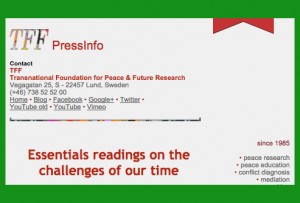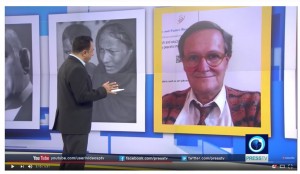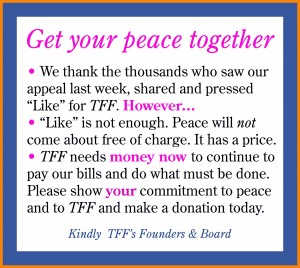India up and then down
By Jonathan Power
October 2nd, 2017
Recent reports estimate that India’s annual economic growth rate is now down to 5.5%. The government of Narendra Modi which until recently seemed to be on a public opinion roll could fall off its log – but that depends on the Indian electorate ending its self-deceit.
Three years ago Modi at the helm of his Hindu nationalist party, the BJP, gave Congress a thumping defeat. Suave and persuasive on the podium, Modi rammed home a simple message – that in the state of Gujarat where he was the chief minister more had been achieved in a short space of time than anywhere else in India.
It was industrializing fast, building more roads, modernizing its ports and communications and helping the poor.
There was some element of truth in this and few doubt that Modi is an effective administrator who is strong on productivity and hard on corruption. Nevertheless, when it comes to the poor the record is by no means as good as he preached. Hunger in his state only fell slowly, no faster than the Indian average. Two-thirds of Indian children received vaccinations but only half in Gujarat. 33% of its children were underweight whilst the Indian overall rate was 30%.
Modi with his silken songs of achievement put the Congress Party in the shadow. Never mind that the Congress government of Prime Minister Manmohan Singh and party chairwoman Sonia Gandhi had reduced the number of poor by 135 million, the poor gravitated towards Modi.
Congress seemed unable to persuade the media – and this was true of the international media too – to give it a fair hearing on its successes. Read the rest of this entry »
TFF PressInfo # 427: Is the nuclear taboo waning?
Revisiting Hiroshima in Iran – Tragic news that US citizens accept nuking non-combatants
By Gunnar Westberg, TFF Board
Opinion study tells that a majority of US citizens accept killing 2 million civil Iranians if it could save 20.000 US soldiers there.
Plus links to urgently important articles about US-Iran relations and the nuclear deal.
This is TFF PressInfo # 427.
TFF PressInfo # 426: Essential readings on our time
 We have changed – a little – TFF PressInfo.
We have changed – a little – TFF PressInfo.
This is the new format – and # 426.
Hope you like it.
Click the envelop at the bottom to subscribe and it will come winging into your mailbox 4-5 times a month.
Revisiting Hiroshima in Iran
What Americans Really Think about Using Nuclear Weapons and Killing Noncombatants
By Gunnar Westberg
TFF Board member
“Revisiting Hiroshima in Iran: What Americans Really Think about Using Nuclear Weapons and Killing Noncombatants”
Scott D. Sagan and Benjamin A. Valentino
International Security, August 2017
This is a summary and a few reflections upon reading a very comprehensive academic study recently published in International Security. See it’s full text here.
The nuclear taboo is no longer strong
In this extensive and scholarly report of 67 pages the authors report on several opinion polls they have conducted in order to learn about the attitudes of Americans to the use of nuclear weapons compared to conventional weapons.
They also review the field extensively comparing with other studies.
Shortly after the bombing of Hiroshima and Nagasaki the Americans strongly supported the use of nuclear weapons in that situation. The approval rate decreased to a large degree over the years.
However, when questions were asked regarding the possibility of using nuclear weapons in a contemporary conflict, such as that between USA and Iran, the attitude to the use of nuclear weapons was still surprisingly positive. The “nuclear taboo” is no longer strong.
An attack with nuclear weapons on a major city is accepted by a not much lower percentage of respondents than is a conventional attack.
A clear majority of Americans would approve of using nuclear weapons against the civilian population of an adversary that does not possess nuclear weapons.
It was seen as acceptable by the respondents to kill 2 million civilian Iranian if they believed that such a nuclear strike would save the lives of 20,000 U.S. soldiers fighting in Iran.
About 60% of the American people support this opinion.
In contrast, a 2010 Chicago Council on Global Affairs survey found that 57 per cent of the public agreed that “the U.S. should only use nuclear weapons in response to a nuclear attack by another nation” and that 20 per cent agreed that “the U.S. should never use nuclear weapons under any circumstances”.
The principle of “non-combatant immunity”, a central principle in international humanitarian law, requires that the military activities should avoid as far as possible damage to the civilian population, compared to the combatant soldiers.
This principle had no strong support by the public opinion in these studies.
It was found that women support nuclear weapons use and violations of noncombatant immunity no less (and in some cases more) than male respondents.
The authors were not surprised by the finding that most Americans place a higher value on the life of an American soldier than the life of a foreign noncombatant.
What was surprising, however, was the radical extent to which they adhered to that preference.
The experiments suggest that the majority of Americans find a 1:100 risk ratio to be morally acceptable.
It should be strongly emphasized that no comparable study has been found for any other population in any other country. It is not known if attitudes in other countries differ from those in the USA.
The Abstract of the study
Numerous polls demonstrate that U.S. public approval of President Harry Truman’s decision to drop the atomic bombs on Hiroshima and Nagasaki has declined significantly since 1945.
Many scholars and political figures argue that this decline constitutes compelling evidence of the emergence of a “nuclear taboo” or that the principle of noncombatant immunity has become a deeply held norm.
An original survey experiment, recreating the situation that the United States faced in 1945 using a hypothetical U.S. war with Iran today, provides little support for the nuclear taboo thesis.
In addition, it suggests that the U.S. public’s support for the principle of noncombatant immunity is shallow and easily overcome by the pressures of war.
When considering the use of nuclear weapons, the majority of Americans prioritize protecting U.S. troops and achieving American war aims, even when doing so would result in the deliberate killing of millions of foreign noncombatants.
A number of individual-level traits – Republican Party identification, older age, and approval of the death penalty for convicted murderers – significantly increase support for using nuclear weapons against Iran.
Women are no less willing (and, in some scenarios, more willing) than men to support nuclear weapons use.
These findings highlight the limited extent to which the U.S. public has accepted the principles of just war doctrine and suggest that public opinion is unlikely to be a serious constraint on any president contemplating the use of nuclear weapons in the crucible of war.
Good-Bye, See You Later
By Johan Galtung
Editorial #500
TRANSCEND Media Service & TFF Associate
We made it! Five hundred Mondays [from 3 Mar 2008] has Antonio from Brazil-Portugal posted an editorial by me from Norway and the world – sometimes with a coauthor. With the good support of the other members of our editorial committee, Malvin Gattinger from Germany, Naakow Grant-Hayford from Ghana and Erika Degortes from Italy. THANKS!
Five hundred times have I had the challenge of exploring what the UN wisely calls a “situation” – unlike me, avoiding the word “crisis”. Five hundred times have I tried to follow what I absorbed from when I was 2 years old at dining tables listening to my physician father and nurse mother–daughter of the director of health care in Norway–the program implicit in the three magic words Diagnosis-Prognosis-Therapy. DPT.
Five hundred analyses of something problematic to put it mildly; five hundred efforts to forecast, foresee what will happen if we do nothing, and five hundred efforts to end creatively with a proposal.
The editorials seem to have been widely read, particularly in the old superpowers, USA and USSR, today mainly Russia. Since most of them have been about something geopolitical, perhaps these two are the most geopolitically minded, trying for a long time to run the world. It could also be that they are simply the most literate in world affairs.
Anyhow, maybe I would have liked to have seen more readers from the new superpowers, China and India; not middle-sized like the old ones, but 37% of humanity. Hopefully more at peace than not.
And one bigger than even China: Islam, 1,650 million Muslims.
It has been a fascinating weekly challenge. Scanning the world for what is new, projecting a DPT on the wall, or the screen rather. Read the rest of this entry »
Trump as war criminal?
By Jonathan Power
September 26th 2017
Out of the blue the war in Vietnam is in the news. Yet it is not the fiftieth anniversary of America’s defeat in Vietnam when North Vietnam caused it to flee. It’s only the forty second.
Part of this must be fearful parallels with the moral and strategic blindness of President Donald Trump who seems to believe in uttering his life and death rhetoric, akin to President Richard Nixon’s on Vietnam, he can frighten the enemy into submission – in his case North Korea.
Many people are worried that Trump is ready to fight America’s biggest war since Vietnam. As did Henry Kissinger, Nixon’s National Security Advisor, he appears to be considering the use of nuclear weapons.
The second reason for Vietnam-consciousness are the rave reviews that are being given to Ken Burns and Lynn Novick’s 10 part documentary on the Vietnam War.
It is being mentioned all over the place.
To my mind one of the big questions is, is Trump ready to be branded a war criminal by present and future generations? Read the rest of this entry »
Kurdish independence referendum wrong and dangerous
By Farhang Jahanpour, TFF Board member
Professor Farhang Jahanpour, Member of Kellogg College at the University of Oxford says “despite the strong affection and admiration that I feel towards the long-suffering Kurds, I believe that the plan to hold a referendum for independence in Iraq is wrong and potentially very dangerous.”
Former Senior Research Fellow at Harvard University also adds that “as part of their attempts to partition and weaken the Middle East, the Israelis have been trying to use the Kurds in their conflict against Iran, without much success.”
Former lecturer at the University of Cambridge says “the Israelis believe that the independence of the Kurds as another non-Arab group, especially if they can turn them against Iran, would be helpful to them.”
Supporting TFF – the many options. There is a way for you too!
People have different preferences and TFF respects that.
We also want it to be easy and safe for you. And, third, not too expensive for us and/or you.
Here are the links to the various options:
1. PayPal and the Swedish Swish mechanism
2. The more traditional bank transfer options depending a little on where you live:
Transfer to TFF’s Swedish bank and bank giro, to our Norwegian bank account, to our Germany account and via Moneygram.
3. And there is FundRazr on Facebook
Finally, may we recommend that you consider making a smaller but regular monthly contribution rather than one-time donations. It helps us a lot in planning our activities.
For sure there is one that suits you!
While making a payment you may be asked for some info about TFF.
Here it is, just copy and paste:
TFF – The Transnational Foundation (Transnationale Stiftelse för Freds- Och Framtidsforskning)
TFF@transnational.org
Vegagatan 25
S-224 57 Lund, Sweden
Tel. +46-(0)738 525200
Registered public-not-for-profit organization under Swedish law # 855001-4637
Thank you in advance for your goodwill and trust. Every sum means a lot!
Jan Oberg
Co-founder and director
The World – Where Are You Heading?
By Johan Galtung
Liu Xiaobo passed away. What is the – not so hidden – truth about him?
Answer: His speeches and writings show enthusiasm for the 100-year English colonization of Hong Kong, wishing 300 years colonization of China, celebrating the US war in Afghanistan, hoping for atomic weapons. He got the Nobel Peace Prize for democratization of China, had the freedom of speech, but the prize communicated as a provocation. The prize could easily have been given to their Charter, not to Liu Xiaobo.
Norway’s security – what are the threats?
Answer: Given the location, an invasion by USA or Russia to prevent the other from doing so. The situation is reminiscent of the threat from England, Germany and USSR to prevent one of the other from doing so in 1940; what happened was England and Germany violating Norwegian neutrality, fighting a battle on Norwegian territory. USSR nothing till they fought German troops in the extreme North losing more soldiers to liberate Norway than Norway during the war, stopping when the Norwegian government in refuge in London told them to do so, thereby making it possible for Germany to destroy Northern Norway.
Norway’s defense today – what is the story?
Answer: A one-sided offensive capacity directed at Russia for a first or second strike, the coast and inland defenseless with 248 of 249 districts (“Heimevernet“, home land defense) incapable of their job.
Why Russia as Chosen Enemy; the real story, the alternatives? Read the rest of this entry »






